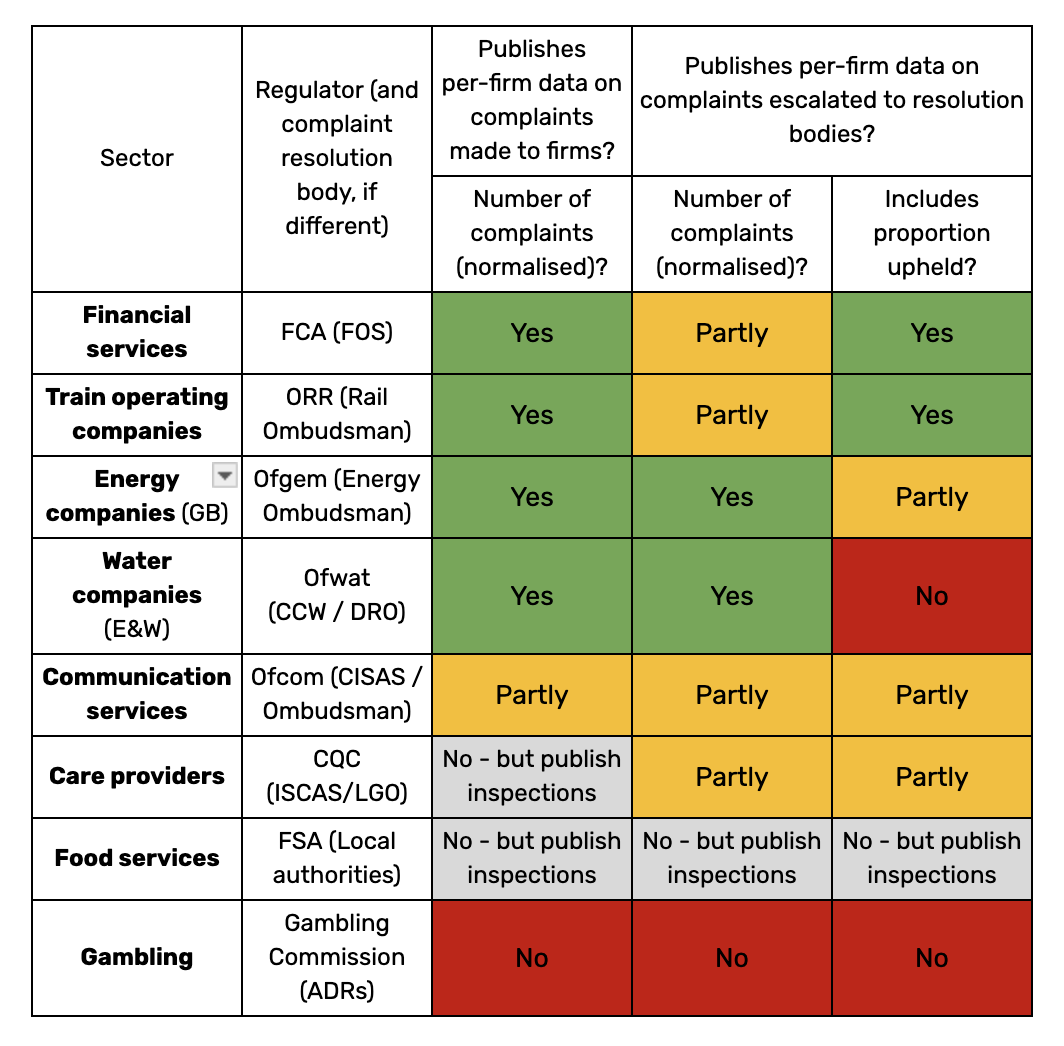Making complaints count: How regulators share complaints data
Regulators often publish data on complaints made to companies. This data lets customers see how different companies are performing.
For example, the UK rail regulator has long published data on complaints made by passengers about different train operators, normalised by the number of journeys to make it easier to compare. If you graph this data, it shows some striking differences between operators.
Maybe best to avoid the new Caledonian Sleeper for a bit!
But sadly, not all regulators publish complaints data that is this useful. Here at CFPD, we’re interested in how regulators use data, partly because of our prior work on data in gambling regulation.
So we’ve just published a short research report, comparing how key UK regulators of consumer services, from energy firms to water companies to banks, share data about customer complaints. This table summarises our findings.
Complaints data published by key regulators of consumer services
In summary, nearly all key consumer regulators now publish firm-level complaints data. Two regulators- the Care Quality Commission, and Food Standards Agency - don’t, but do publish inspection ratings instead, which means consumers aren’t as reliant on complaints for comparing firms.
The major exception is the gambling regulator, the Gambling Commission, which doesn’t publish any regular data on complaints. We asked the Gambling Commission why this was, but it didn’t give us a clear answer.
Our report recommends:
The Gambling Commission should start publishing firm-level data on consumer complaints, in line with other key regulators, to help protect consumers.
All regulators should publish firm-level, normalised, timely data, at least for complaints made to resolution bodies (like ombudsmen or ADRs), and preferably for complaints made directly to firms too.
The next government can support consumers by requiring all major regulators of consumer services to publish complaints data to a common standard.
You can read the full report here. If you’re interested in these findings, please do get in touch - we’d love to hear from you.

